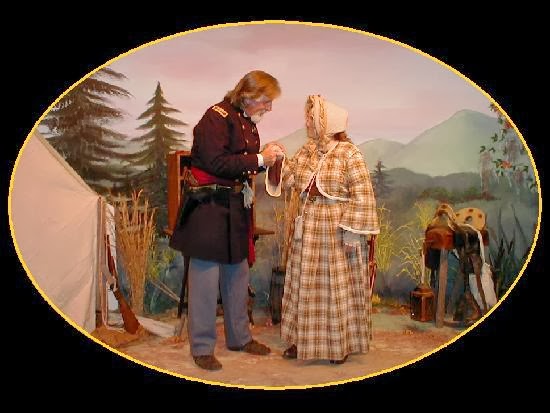DECEMBER 20, 1863:
A Union soldier,
George Hovey Cadman, writes home about an incident involving a Rebel widow:
. . . During the day an incident occurred which shows how
many things hard to bear occur during war time. The top of the hill where we
are building the Fort has been used by the inhabitants as a Grave Yard . . .
[our work] necessarily disturbs many of the Graves. [A] widow came to beg us to
allow her to have her husband’s body removed . . . for she could not bear the
thought of a fight taking place over her husband’s grave . . . The Colonel very
kindly detailed four men to take the body up . . . I went with the detail and
helped rebury the poor fellow and shall [never] forget the gratitude of the
poor woman. She said she did not think the Yankees could be so kind. She took
down all the names of the squad who helped her that she might pray for them,
and promised me she would pray for me and my wife and children. So if a rebel’s
prayers are any account I suppose I shall gain something by it. But best of
[all] she got us a good dinner. We had fried sausage, roast & boiled Pork,
head cheese, peach pies, and sweet milk, and an invitation to go and see her
whenever we could get leave . . . as she is 60 years old you need not get
jealous [unless] you like.

